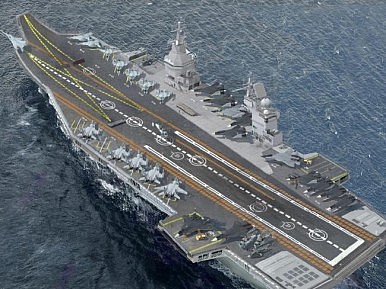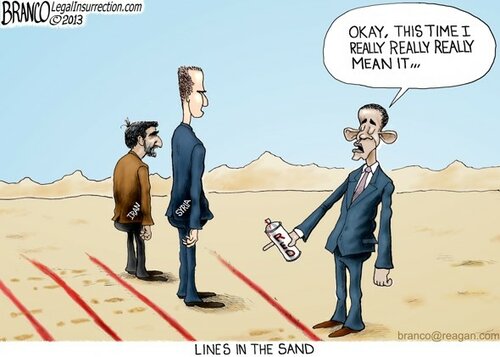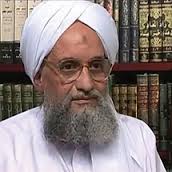Entrevista com Kevin Ryan
Nesta entrevista, Kevin Ryan, autor de Another Nineteen: Investigating Legitimate 9/11 Suspects, fala sobre: as 28 páginas classificadas recentemente anunciadas pela mídia, e suas contradições; a insustentável versão oficial dos ataques de 11 de Setembro de 2001; a fracassada Comissão de Bush para apurar os atentados e o que deve ser investigado para se chegar à verdade dos fatos; a cobertura dos meios de comunicação e o estado de espírito dos norte-americanos hoje em relação ao 11 de Setembro; e suas perspectivas dados os atuais candidatos presidenciais dos Estados Unidos, em investigar seriamente os ataques do 11/9 a fim de se fazer justiça aos familiares das vítimas.
Edu Montesanti: Kevin Ryan, muito obrigado por conceder esta entrevista. É uma grande honra para mim. Você poderia, por favor, descrever suas atividades no movimento pela verdade do 11/9 [9/11 Truth]?
Kevin Ryan: Sou membro de várias organizações que procuravam revelar a verdade sobre o 11/9. Sou membro-fundador da Scholars for 9/11 Truth & Justice, e do 9/11 Working Group of Bloomington. Também tenho atuado como diretor do Architects and Engineers for 9/11 Truth.
Tenho ministrado palestras e de outras formas colaborado com membros da família vítimas do 11/9, e mantenho amizade com alguns deles. A coragem e a determinação por parte deles são inspiradoras para mim.
Sou co-editor do Journal of 9/11 Studies desde 2006, ano em que este teve início. Naquela época, tive três companheiros que me ajudaram a publicar cerca de 150 artigos e cartas sobre os crimes do 11/9.
Qual a evidência em relação ao envolvimento do governo saudita nos ataques do 11/9?
As pessoas citam o depoimento de Zacarias Moussaoui, relatado por ter apontado o dedo a vários príncipes sauditas como fontes de financiamento da Al-Qaeda. Além disso, sabemos que os supostos sequestradores do 11/9 receberam apoio, financeiro e de outras formas, de alguns sauditas.
Nisto, incluiu-se Omar Al-Bayoumi, suspeito da espionagem saudita e empregado de uma empresa de aviação saudita, que acomodou dois dos suspeitos em um apartamento e pagou-lhes o aluguel.
Al-Bayoumi e outro suspeito de ter sido agente da Al-Qaeda, Osama Basnan, receberam apoio financeiro regular da princesa da Arábia, Haifa bint Faisal, através de pagamentos de Haifa a suas esposas.
Há também muitas ligações notáveis de sauditas com o 11/9 que sugerem que pessoas poderosas nos Estados Unidos podem ter estado envolvidas nos crimes.
Por exemplo, fatos envolvendo a Stratesec, empresa que possuía contratos de segurança com várias das instalações impactadas naquele dia, vincula os sauditas ao 11/9. A Stratesec realizou sua reunião anual, através da qual se elegeu diretores como Marvin Bush [irmão mais novo do então presidente Bush] para o conselho, em escritórios alugados pelos sauditas no complexo Watergate.
O diretor executivo da Stratesec, um homem chamado Wirt D. Walker, suspeito de operações internas no 11/9, usou o mesmo escritório saudita como endereço oficial para vários de seus outros negócios.
Isto incluiu a Aviation General, empresa que operava de um galpão em um pequeno aeroporto na cidade de Oklahoma, que agora é ocupado, por coincidência, pelo instrutor de voo de Zacarias Moussaoui.
De maneira mais simples, é claro, 15 dos 19 sequestradores acusados eram cidadãos sauditas. No entanto, existe uma grande quantidade de provas de que estes homens estiveram envolvidos em comportamentos claramente não-muçulmanos tais como usar drogas, beber álcool e frequentar clubes de strip-tease.
Além disso, alguns deles parecia ser protegido pelas autoridades durante seu período nos Estados Unidos.
Qual a evidência de que as supostas 28 páginas classificadas da versão oficial do 9/11, mencionam os sauditas?
O relatório da Investigação Conjunta do Congresso sobre o 11/9 fez muitas referências em relação à Arábia Saudita, mas a evidência real fornecida era frágil. Muitas das referências questionaram a cooperação saudita com as autoridades norte-americanas nas investigações relacionadas à Al-Qaeda.
Ironicamente, essas referências sauditas foram feitas por pessoas como o ex-diretor do FBI, Louis Freeh, suspeito de ter facilitado o terrorismo, pelo ex-assessor de Segurança Nacional, Sandy Berger, que mais tarde foi flagrado roubando documentos que a Comissão do 11/9 havia solicitado ao Arquivo Nacional, e pelo líder de contraterrorismo Richard Clarke, conhecido por ter vazado planos secretos para capturar Osama bin Laden em diversas ocasiões antes do 11/9.
O relatório da Investigação Conjunta também menciona “o líder da Al-Qaeda, Abu Zubaydah”, por ter recrutado para a Al-Qaeda na Arábia Saudita. Mais tarde, ao responder a uma petição de habeas corpus, o governo dos EUA recuou de sua alegação de que Zubaydah tenha tido qualquer relação com a Al-Qaeda.
Nem a Investigação Conjunta, nem a Comissão do 11/9 que tanto se apoiou nessa afirmação como verdadeira, revisou seus relatórios após esta incrível revelação. E, pelo menos, um dos líderes da Comissão pareciam contrair amnésia sobre Zubaydah.
Estão nos deixando com observações feitas pelo ex-senador Bob Graham e outros que têm visto as 28 páginas redigidas. Eles fazem comentários que sugerem que os líderes sauditas estavam envolvidos no financiamento dos ataques.
Se estas observações referem-se a alguma informação já conhecida, como os pagamentos efetuados pela princesa Haifa ou qualquer outra coisa, não estará claro até que vejamos essas páginas. Mas é importante notar que Graham estava entre as pessoas que inicialmente trabalharam para atrasar qualquer investigação sobre o 11/9.
Mais importante ainda, o acesso contínuo aos recursos naturais da Arábia Saudita é de interesse primordial para os líderes do governo dos EUA. Parece que os clamores para a liberação dessas 28 páginas estão sendo usados mais para controlar o governo saudita, e, assim, fornecer acesso aos EUA a esses recursos, do que prestes a chegar à verdade sobre o 11/9.
Como você avalia as recentes declarações do presidente Obama, que permitir que os familiares das vítimas do 11/9 processem a Arábia Saudita por cumplicidade naquele crime abriria terrível precedente ao expor os Estados Unidos até a ações judiciais em solo estrangeiro?
As ações do presidente Obama, incluindo sua recente visita à Arábia Saudita e a promessa de vetar o projeto de lei que permitiria que os sauditas fossem processados, parecem colocá-lo no papel de bom policial em uma rotina de mau policial/bom policial em curso.
Ele está permitindo que eles saibam que está do seu lado, enquanto seus colegas no Congresso e na mídia corporativa estão fazendo ameaças sobre a liberação das 28 páginas.
É um ato de equilíbrio destinado a manter o novo rei saudita e seus assessores mais jovens sob controle, ajudando-os a compreender que seu país pode ser controlado por meio da força-dirigida da propaganda, se necessário.
As leis norte-americanas acerca da imunidade soberana têm sido a base para a rejeição de processos por parte das famílias do 11/9 no passado. A administração de Obama prevê que, se as alterações a estas leis forem feitas, os EUA estariam abertos a ações judiciais por parte dos muitos estrangeiros que o país tem atacado; por exemplo, as vítimas da invasão e da ocupação do Iraque.
A única exceção à lei é que os cidadãos podem processar um governo estrangeiro citado pelos EUA como patrocinador do terrorismo. Portanto, se ao governo saudita é aberta uma exceção, ligando-o ao terrorismo, os EUA não teriam que mudar a lei e enfrentar o risco.
Estas questões parecem ser parte da iniciativa política dos líderes norte-americanos, engajando-se agora em controlar o governo saudita.
Qual seria o interesse da Casa de Saud em ajudar um ataque terrorista como o do 11/9 nos EUA, Kevin?
O regime saudita vê inimigos em todos os lugares, e usa sua relação com a máquina de guerra norte-americana para se proteger contra esses inimigos. A Casa de Saud tem colaborado com os EUA desde os anos de 1930 mas, na década de 1970, essa relação cresceu a ponto de incluir o apoio de operações secretas através de uma organização chamada Safari Club.
O presidente George H. W. Bush, mais tarde, ajudou a criar laços mais estreitos entre as operações da Arábia Saudita e da CIA através do financiamento terrorista da CIA à rede BCCI.
Essa rede privada financiou os mujahideen [combatentes] no Afeganistão, e foi o precursora da Al-Qaeda. O amigo pessoal, íntimo de Bush, o príncipe Bandar (Bandar Bush) tem estado no centro do terror apoiado pela Arábia desde antes do 11/9.
Kevin, observa-se algumas contradições profundas no contexto das 28 páginas: ele aponta que a Al-Qaeda esteva por trás dos ataques do 11/9, o que é refutado por Architects and Engineers for 9/11 Truth. Em segundo lugar, a grande mídia, que se esqueceu há muito tempo dos ataques do 11/9 e se recusou a investigar suas implicações, agora estranhamente anuncia as 28 páginas.
O professor Michel Chossudovsky observa que:
Este suposto envolvimento saudita nos ataques do 11/9 tem servido para conduzir segmentos do movimento pela verdade do 11/9 a um discurso errado e contraditório. (…) O objetivo do truque de propaganda da conexão saudita é, em última análise, sustentar a narrativa oficial que afirma que os terroristas islamitas estavam por trás dos ataques de 9/11.
Ele também lembra que:
As duas figuras-chave por trás dessa nova onda de propaganda são o ex-senador Bob Graham, que liderou a investigação conjunta do Senado e as comissões de Inteligência dos deputados, junto do republicano Porter Goss, funcionário de carreira da CIA que, posteriormente, foi nomeado Diretor de Inteligência Nacional (DNI) pela administração de Bush.
Graham coordenou a elaboração e a edição do relatório, incluindo as 28 páginas classificadas sobre a Arábia Saudita.
Enquanto Graham está sendo agora anunciado pela mídia como um defensor da verdade pelo 11/9, a evidência sugere que nos primeiros momentos pós-ataques do 11/9, ele esteve envolvido (em conjunto com Porter Goss) em um encobrimento em nome de Bush-Cheney.
Como você avalia esses fatos?
Professor Chossudovsky nos diz que a Al-Qaeda é uma criação da CIA. Isso não significa que a Al-Qaeda não existe, mas que se trata de uma inimiga controlada pelas pessoas que dizem nos proteger dela.
Jogando em ambos os lados novamente, como no caso de democratas contra republicanos e de judeus contra muçulmanos, os poucos poderosos podem facilmente enganar o público através deste tipo de propaganda dualista.
O artigo que você cita, de Chossudovsky, usa como base meu próprio artigo anterior sobre o assunto. Portanto, estamos de acordo sobre a questão em sua maior parte. No entanto, vejo as 28 páginas como não apenas um blefe que propaga o mito de que “os muçulmanos fizeram isso”, que sabemos ser falso, mas também como meio de controlar o regime saudita.
A mídia ainda fala sobre os “19 sequestradores”, a maioria deles sauditas enquanto sete deles estão comprovadamente vivos. Desta maneira, o número de supostos sequestradores deve ser mudado, não? E como você vê o fato de que alguns dos supostos terroristas suicidas nos aviões anunciados pelo FBI, logo depois apareceram vivo no Norte da África e no Oriente Médio?
Nas semanas posteriores aos atentados do 11/9, fontes de notícias tradicionais informaram que alguns dos sequestradores acusados ainda estavam vivos. Isso foi relatado por importantes meios de comunicação, como The Independent, o London Telegraph e a British Broadcasting Corporation.
Embora a BBC tenha tentado retirar as reivindicações mais tarde, o Telegraph informou que havia entrevistadoalguns desses homens, os quais o jornal disse que tinha os mesmos nomes, as mesmas datas de nascimento, os mesmos locais de nascimento, e as mesmas ocupações dos acusados.
Embora tenha havido especulações sobre identidades roubadas, ninguém explicou satisfatoriamente as discrepâncias acerca dos relatos dos supostos terroristas ainda estarem vivos.
Uma tentativa particularmente frágil, citada como fonte primária na Wikipedia, era uma absurda reportagem sem nenhuma base da revista alemã Der Spiegel, que utilizou o “historiador dos EUA, Daniel Pipes” como autoridade.
Não é mencionado o fato de que Pipes, um neocon de segunda geração e assinante do Project for the New American Century, é sem dúvida o islamofóbico mais importantes do mundo.
Mais importante, os relatórios de que os homens acusados ainda estavam vivos não foram investigados pelo FBI nem pela Comissão do 11/9. Mesmo o novo diretor do FBI, Robert Mueller, expressou publicamente dúvidas sobre a identidade dos sequestradores.
No entanto, até hoje não houve nenhuma resposta oficial a estas contradições, apesar de sua alta relevância para a investigação em geral.
Você diz que “nos EUA, a mídia tende a focar a história apenas na Arábia Saudita”. A que se deve isso?
Quando os meios de comunicação predominantes relatam as questões não respondidas do 11/9, geralmente são muito limitados. Nunca vemos histórias sobre os testemunhos do bombeiro para as explosões secundárias nos edifícios do World Trade Center, nem investigação sobre os exercícios militares que obstruíam as respostas de defesa aérea naquele dia. Não ouvimos nada sobre como setenta por cento das questões das famílias das vítimas do 11/9 permanecem sem resposta diante da versão oficial.
Apenas ouvimos sugestões de que a Arábia Saudita poderia estar envolvida no financiamento à Al-Qaeda. Embora isso provavelmente seja verdade até certo ponto, dizer que tal revelação vai nos trazer a verdade sobre os crimes do 11/9 é como dizer que a verdade sobre o câncer é que ele é causado por tumores, sem nunca questionar como surgem os tumores. Há, em ambos os casos, muito mais a ser desvendado.
A Arábia Saudita tem a [segunda] maior reserva de petróleo do mundo, e a economia EUA é criticamente dependente da estabilidade da Arábia e do fornecimento deste recurso vital. A manutenção da relação EUA-Arábia e os preços do petróleo em dólares norte-americanos são prioridades muito altas para os líderes norte-americanos.
É justo dizer que qualquer coisa que os líderes do governo EUA digam sobre a Arábia Saudita, está ligada à manutenção deste relacionamento e ao sistema de petrodólares. Isso, na minha opinião, inclui os clamores pela liberação das 28 páginas ainda classificadas.
Diz-se que milhares de judeus que trabalhavam no World Trade Center, surpreendentemente, não foram trabalhar exatamente no dia 11 de setembro de 2001. O que você pode dizer sobre isso?
Que o mito tem sido muito exagerado. Essa versão parece ter se originado no fato de que dois funcionários de uma empresa israelense localizada em Nova Iorque foram avisados de que um ataque poderia ocorrer na cidade naquela manhã.
Apesar disso, o aviso não foi específico sobre o World Trade Center e levou a uma investigação que aparentemente nunca foi concluída. O que as pessoas precisam entender é que havia uma grande quantidade de conhecimento prévio sobre os ataques do 11/9, com uma dúzia de governos fornecendo alertas de vários tipos antes dos ataques. O governo israelense estava entre os doze governos que forneceram avisos, segundo informações da Imprensa.
É também muito importante entender que o 11/9 foi um engano que utilizou as tendências mais banais da psique humana. Embora a guerra nunca se deu por diferenças religiosas, os mais frágeis entre nós sempre irá achar que que é assim, pois eles estão sendo enganados.
E cria dicotomias duvidosas como a do judeu contra os muçulmanos ou a do democrata contra o republicano, que têm sido uma maneira de enganar as massas enquanto os verdadeiros culpados jogam dos dois lados, para seu próprio benefício. Em relação ao 11/9, já passou da hora de se reconhecer que a religião não teve nada a ver com aquilo, e que os estrangeiros não poderiam ter perpetrado os atentados.
O professor David Griffin menciona em seu livro The New Pearl Harbor: Disturbing Questions about the Bush Administration and 9/11, que o governo dos EUA tem sido o principal beneficiário dos ataques. Você também menciona em seu livro Another Nineteen: Investigating Legitimate 9/11 Suspects, que a versão oficial é falsa. Para você, quais poderiam ser os interesses do governo dos EUA em relação aos ataques do 11/9? Você acredita que eles realmente foram um “novo Pearl Harbor” para Washington já que o próprio Project for the New American Centrury de 2000, elaborado por membros do Partido Republicano quando Bush era candidato a presidente, apontava como necessário aos Estados Unidos?
Concordo com o ponto principal do professor Griffin, sim. Os crimes do 11/9 foram um pretexto para guerras de agressão que já tinham sido previstas, empreendidas para consolidar o poder através da pilhagem de recursos naturais.
O exercício desse novo poder tem se dado através da máquina de guerra norte-americana, mas os verdadeiros beneficiários são empresas transnacionais e as pessoas que são proprietárias dessas empresas.
Um exemplo de empresa que se beneficiou dos ataques foi a Science Applications International Corporation(SAIC).
Você mencionou anteriormente que “questões das famílias das vítimas do 11/9 permanecem sem resposta diante da versão oficial”. Você também diz em seu livro que é necessária uma nova investigação sobre os crimes do 11/9. Aponte, por favor, as questões que permanecem sem resposta.
As perguntas sem resposta da Family Steering Committee for the 9/11 Independent Commission podem ser encontrados na Internet. As perguntas são voltadas aos líderes norte-americanos que foram completamente ineficazes em proteger a nação.
Como evidenciei em meu livro, ou esses mesmos homens facilitaram o terrorismo ou inexplicavelmente fracassaram ao responder quando a nação foi atacada.
As questões mais amplas que permanecem sem resposta incluem: Por que a rede de comando dos EUA não responder aos ataques? Nenhum dos principais líderes fez nada para proteger a nação, e muitas das pessoas mais importantes não estavam presentes em seus postos de trabalho.
Além disso, por que as defesas aéreas norte-americanas não conseguiram, com aviões sequestrados voando ao redor do país durante duas horas, capturá-los com jatos interceptadores como é o caso frequente? Esta questão é agravada pelo fato de que quatro relatos oficiais diferentes foram apresentados para as falhas da defesa aérea, cada um contrariando o anterior.
Da mesma forma, vários relatos oficiais diferentes foram fornecidos para a destruição sem precedentes dos três grandes edifícios naquele dia, mas nenhuma dessas explicações jamais considerou a óbvia hipótese de demolição controlada. A hipótese de demolição é agora sustentada por uma grande quantidade de evidências, e por isso devemos perguntar: Quem colocou explosivos nos edifícios do World Trade Center?
Como estas questões podem ser respondidas? Que medidas as famílias e ativistas como você reivindicam que devam ser tomadas?
Estas perguntas podem ser respondidas através da investigação. No entanto, uma vez que tivemos várias investigações do governo dos EUA que não conseguiram responder à maioria das perguntas, precisamos de investigação independente, talvez internacional.
Há muita coisa que os investigadores independentes podem fazer para revelar mais envolvendo a verdade.
Você convida as pessoas que perguntam o que mais pode ser feito para alcançar verdade e justiça pelo 9/11, a formular as seguintes questões:
1. O que mais podemos saber da versão oficial sobre transponder e do uso do piloto automático no 11/9?
2. Quem foi convidado à reunião de eliminação de explosivos/terrorismo no World Trade Center 7 na manhã de 11 de setembro de 2001, e qual foi a ordem do dia?
3. O que os clubes de strip-tease, os bares e os outros negócios frequentados pelos supostos terroristas têm em comum?
Comente, por favor, cada um desses pontos, Kevin.
Estes são apenas alguns exemplos de perguntas para investigadores independentes. A primeira trata de como os aviões foram sequestrados e por que não houve resposta. Muitas vezes as pessoas entendem mal, pensando que os transponders dos aviões sequestrados foram todos desligados e, portanto, os aviões não poderiam ter sido rastreados.
Esta afirmação não reconhece que as autoridades tinham rastreado aviões que traficavam drogas via radar por muitos anos. Mais importante, o voo 175 não desligou seu transponder. Este foi o segundo avião que atingiu o World Trade Center e seu transponder esteve ligado durante todo o tempo que os defensores de ar o assistiam na tela.
Por isso, eles sabiam que estava fora da rota. Voou sequestrado por 20 minutos após o primeiro avião ter atingido o World Trade Center (cerca de 45 minutos após o primeiro sequestro, este fato era sabido das lideranças da Administração Federal de Aviação).
Na medida que o piloto automático avança, é interessante notar que, de acordo com o estudo oficial da trajetória de voo, o piloto automático do voo 77 ficou ligado enquanto o avião era sequestrado, e ao longo de sua volta de 180 graus de volta para Washington. Parece que ou a volta a Washington foi parte do caminho do voo programado, ou o piloto automático foi comandado instantaneamente.
A segunda questão refere-se a uma reunião convocada por Larry Silverstein e pelo Serviço Secreto no edifício 7 do World Trade Center na manhã de 11/9. Unidades de eliminação de explosivos provenientes de instalações militares dos EUA haviam sido convidadas para a reunião. Foi apenas mais uma incrível coincidência? Precisamos saber mais sobre isso.
A terceira questão centra-se nos homens acusados. Os fatos que sabemos sobre eles mostram que se comportaram de forma bastante diferente do que o governo apresentou, e eles, claramente, não eram muçulmanos. Quem os apoiou?
Em que pontos a Comissão do 11/9 falhou?
Como afirmado anteriormente, a Comissão do 11/9 não conseguiu responder 70% das perguntas colocadas pelas famílias do 11/9, responsáveis por dirigir a criação da Comissão.
Também é importante perceber que um esboço do que viria a se tornar o Relatório da Comissão do 11/9 foi produzido antes do início da investigação. O esboço foi mantido em sigilo do pessoal da Comissão, e parece ter determinado o resultado da investigação.
Além disso, a Comissão alegou repetidas vezes, 63 vezes para ser exato, que não encontrou nenhuma evidência relacionada a muitos dos aspectos mais importantes dos crimes. Esses fatos sugerem que a Comissão nunca teve nenhuma intenção de revelar a verdade sobre o 9/11.
Evidências apontam para uma “execução interna” dos atentados, isto é, perpetrada dentro dos Estados Unidos e não a partir de cavernas no Afeganistão?
Por “execução interna”, a maioria das pessoas quer dizer que os norte-americanos em posições de poder foram responsáveis pela realização dos ataques. Deste ponto de vista, é difícil discordar considerando que as pessoas fora dos Estados Unidos não poderiam ter feito o que precisava ser feito [para atingir e derrubar as Torres Gêmeas e o Pentágono].
Por exemplo, apenas os norte-americanos poderiam ter levado a rede de comando dos EUA a falhar, e apenas os norte-americanos poderiam ter desativado as defesas aéreas.
Em outro sentido, o 11/9 continua sendo um “trabalho interno” pelo qual muitos norte-americanos não vão sequer atentar à evidência dos crimes. Eles simplesmente não podem considerar as implicações que se seguem, a partir da ideia de que não sabemos quem nos atacou em 11/9. As barreiras psicológicas são muito grandes.
Como está o estado de espírito da sociedade norte-americana em geral, no que respeita à luta pela investigação independente dos atentados do 11/9?
Infelizmente, muitos norte-americanos não estão interessados em nada que questione sua lealdade cega ao governo. Para alguns, muitas das instituições da própria vida seriam colocadas em questão se os fatos sobre o 11/9 fossem conhecidos.
Eles teriam que perguntar por que tantas pessoas não conseguiram fazer o seu trabalho, incluindo aqueles dentro do sistema de justiça, da mídia, das universidades, e da aplicação da lei. Isso os tiraria do conforto psicológico e, portanto, muitas pessoas não podem seguir por este caminho.
Como você vê a cobertura da mídia, tanto a predominante quanto a alternativo, envolvendo as investigações do 11/9? Como pode atuar a mídia a fim de ser um suporte realmente eficaz para a apuração da verdade dos fatos?
Na sociedade de hoje, a mídia não é uma ferramenta para informar o público. É de entretenimento e propaganda. As pessoas não são entretidas por questões que desafiam seriamente as principais instituições de suas vidas.
E isso não é do interesse dos meios de comunicação, que agora são quase inteiramente de propriedade de apenas algumas grandes corporações para impor a verdade à sociedade. Como a GE pode vender armas se sua parceira, a rede de TV NBC disser às pessoas a verdade sobre a guerra?
Existem maneiras de se produzir uma mídia mais objetiva e responsável, eu acho. Mas isso requer que as pessoas passem por momentos mais dolorosos em que são forçadas a ver o engodo em suas próprias vidas. Talvez o próximo grande ataque terrorista leve a uma convocatória para reportagens mais factuais.
Qual é sua expectativa em relação aos candidatos presidenciais atuais, a fim de se ter uma investigação levada a sério nos próximos anos envolvendo o 11/9?
Nenhum dos candidatos presidenciais vai fazer nada para desafiar a versão oficial do 11/9. Se o fizessem, nunca ouviríamos nada sobre eles na mídia corporativa.
Artigo original em inglês :
9/11 Truth and Saudi Arabia’s Alleged Involvement in the 9/11 Attacks. The Missing 28 Pages

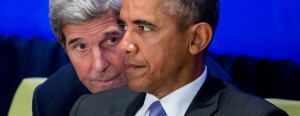


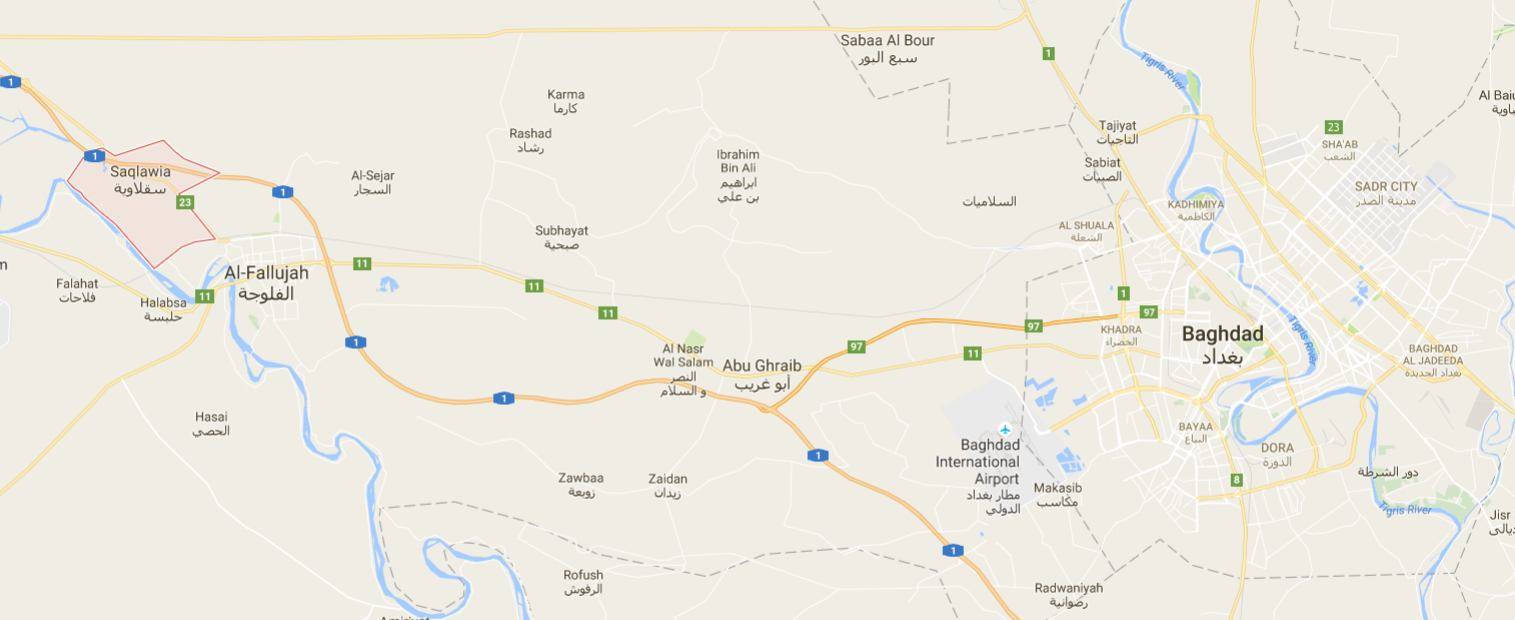






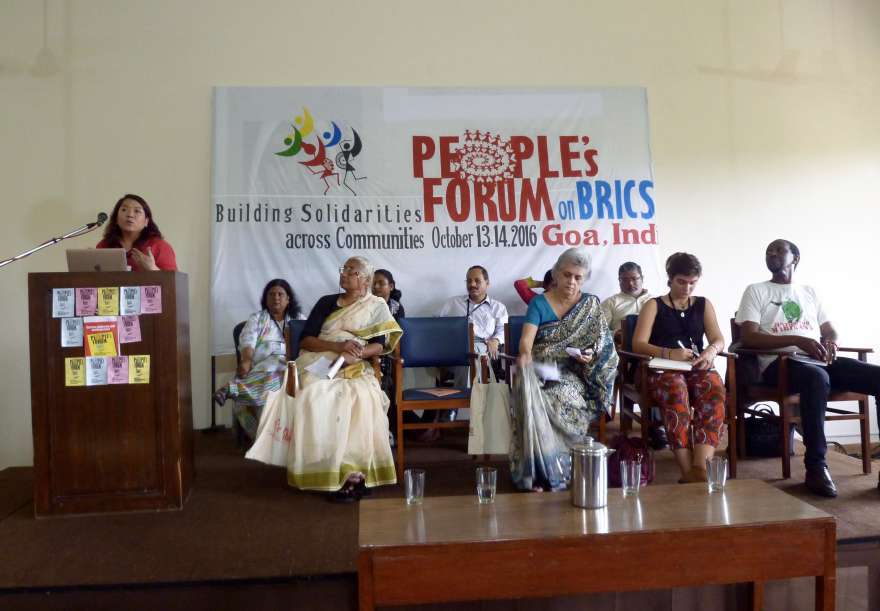
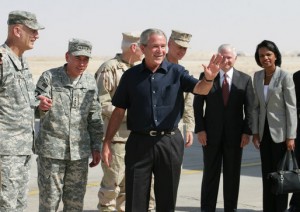
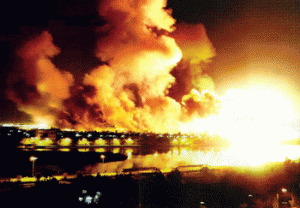
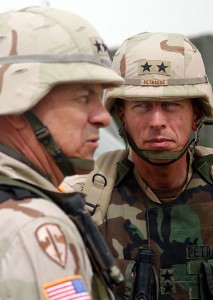
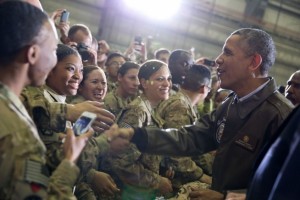
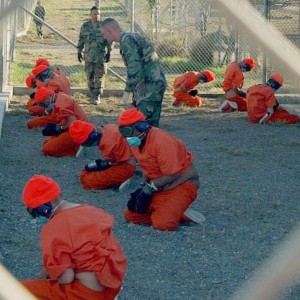


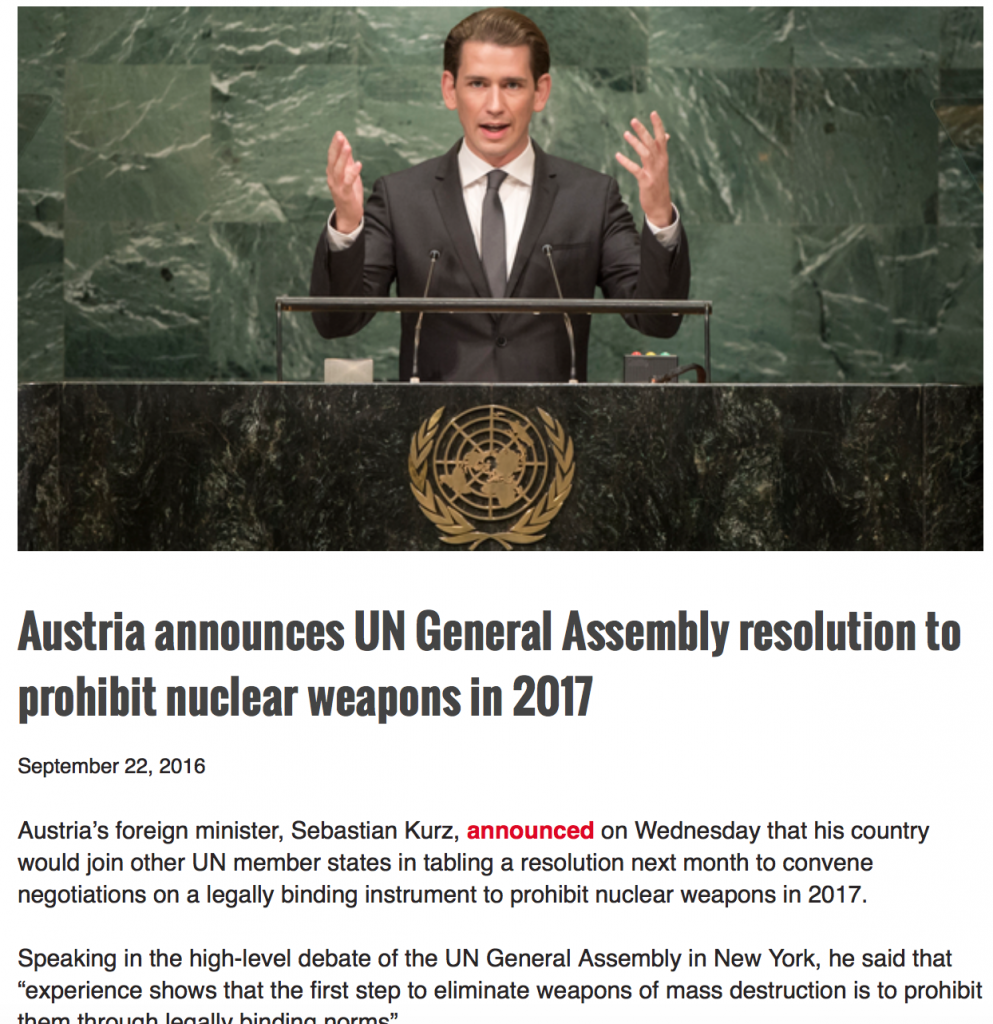
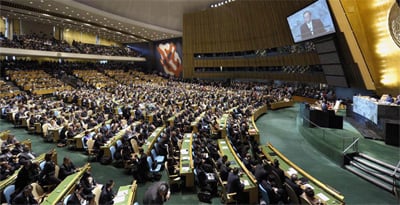

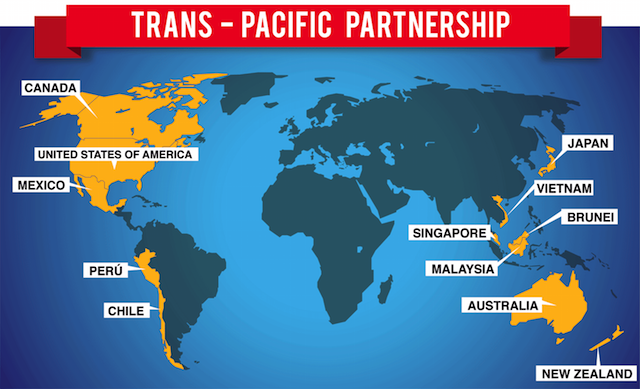




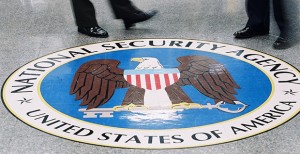
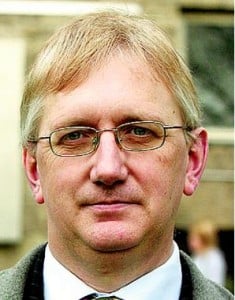
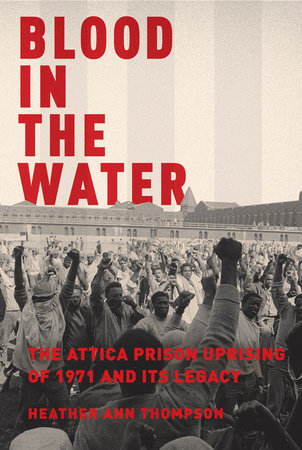



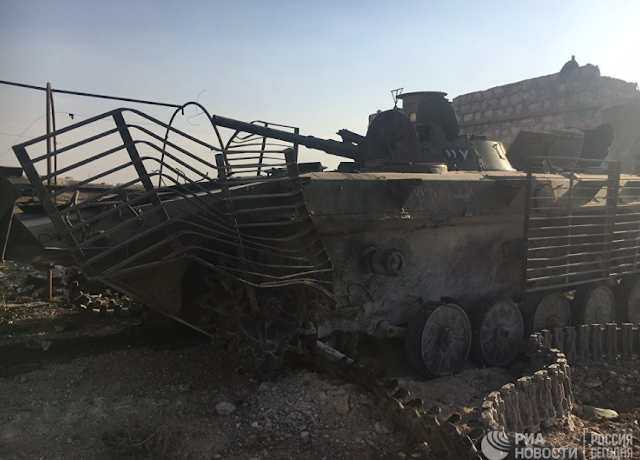






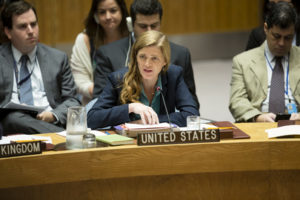
![U.S.-backed Syrian "moderate" rebels smile as they prepare to behead a 12-year-old boy (left), whose severed head is held aloft triumphantly in a later part of the video. [Screenshot from the YouTube video]](https://consortiumnews.com/wp-content/uploads/2016/07/Screen-Shot-2016-07-21-at-12.32.20-PM-300x241.png)



